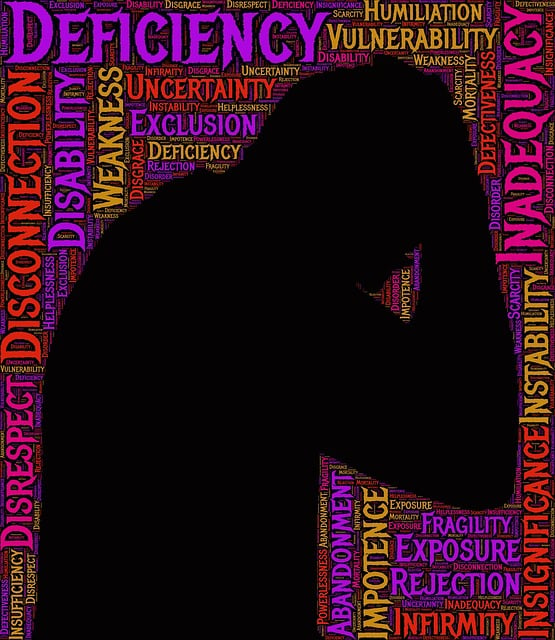Risk assessment is crucial in therapy for young adults, addressing modern challenges like identity formation, academic pressures, and social media comparisons. Mental health professionals utilize evidence-based practices, such as Cognitive Behavioral Therapy (CBT), to mitigate immediate and long-term risks. By evaluating client backgrounds, behaviors, and systemic issues, therapists develop personalized safety plans that enhance treatment efficacy, build resilience, and prevent crises. This comprehensive approach ensures a supportive environment and improves care quality for young adult clients receiving CBT.
“Mental health professionals play a vital role in navigating the complex landscape of young adults’ well-being, but they face unique risks and challenges. This article explores comprehensive risk assessment practices tailored to this demographic, focusing on cognitive behavioral therapy (CBT). We delve into specific risks prevalent in therapy for young adults and present strategies to enhance safety and effectiveness in CBT delivery. Understanding these aspects is crucial for professionals to foster a supportive environment, promote positive outcomes, and ensure resilience among their clients.”
- Understanding Risk Assessment in Mental Health Practice
- Specific Risks and Challenges in Therapy for Young Adults
- Strategies for Safe and Effective Cognitive Behavioral Therapy Delivery
Understanding Risk Assessment in Mental Health Practice

In mental health practice, risk assessment is a vital tool that helps professionals identify and mitigate potential hazards within their therapeutic environments. It involves a comprehensive evaluation of various factors that could negatively impact client outcomes, including those related to individual clients’ backgrounds and behaviors, as well as systemic issues within the healthcare setting. By conducting thorough risk assessments, mental health practitioners can create tailored safety plans, ensuring both the security of their young adult clients and their own professional well-being. This process involves considering not just immediate dangers but also long-term risks that might lead to anxiety relief or burnout prevention for both patients and therapists, often achieved through evidence-based practices such as Cognitive Behavioral Therapy (CBT).
Understanding risk assessment is crucial for fostering a supportive therapy for young adults environment. It allows professionals to build confidence boosting interventions aimed at addressing specific vulnerabilities while promoting resilience. For instance, recognizing early signs of escalating symptoms can prompt timely interventions that prevent crises and enhance overall client well-being. By integrating these strategies into their practice, mental health professionals can create a more robust framework, ensuring they are prepared to navigate complex cases effectively, thereby improving both the quality and effectiveness of care delivered.
Specific Risks and Challenges in Therapy for Young Adults

The field of mental health treatment among young adults presents unique challenges and risks that require careful consideration. This demographic often faces complex issues such as identity formation, academic pressures, and social media-driven comparisons, which can significantly impact their psychological well-being. As a result, therapists need to be adept at navigating these modern-day concerns while employing effective therapeutic techniques.
Cognitive Behavioral Therapy (CBT), for instance, has proven beneficial in treating various mental health disorders prevalent among young adults. However, therapists must also address the specific risks associated with this age group, such as the potential for self-care routine development deficiencies and mood management difficulties. Additionally, ensuring cultural competency among healthcare providers is essential to create a safe and inclusive environment for diverse young adult clients.
Strategies for Safe and Effective Cognitive Behavioral Therapy Delivery

Mental health professionals delivering Cognitive Behavioral Therapy (CBT) for young adults must prioritize safety and effectiveness. This involves a multi-faceted approach starting with thorough risk assessment tailored to each client’s unique needs and circumstances. By understanding potential triggers, past traumas, and current coping mechanisms, therapists can create a secure therapeutic environment.
Implementing strategies like Mind Over Matter principles and focusing on Coping Skills Development empowers young adults to manage stress, anxiety, and potential triggers. Regular monitoring and adjustment of treatment plans based on progress and emerging challenges ensures a dynamic process that supports mental wellness coaching programs. Incorporating these methods not only enhances the delivery of CBT but also fosters resilience in clients.
Mental health professionals play a vital role in assisting young adults with their therapeutic journeys. By understanding risk assessment, identifying specific risks in therapy, and implementing strategies for safe cognitive behavioral therapy (CBT) delivery, practitioners can enhance their practice and ensure positive outcomes. Integrating these approaches creates a robust framework for managing potential challenges, allowing professionals to provide effective support tailored to the unique needs of young adults seeking CBT.










